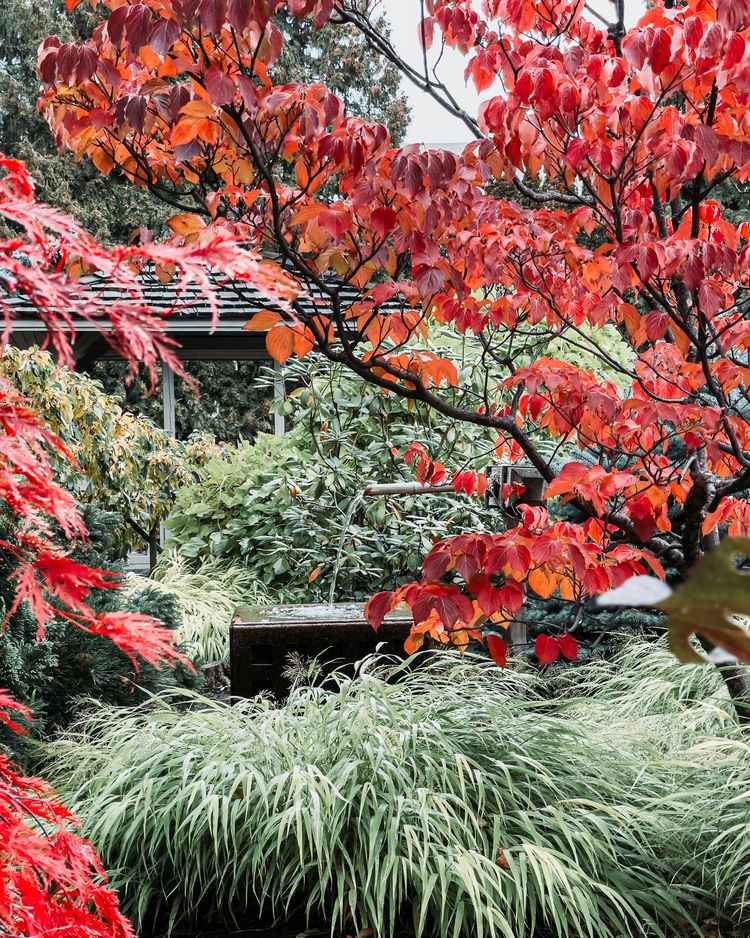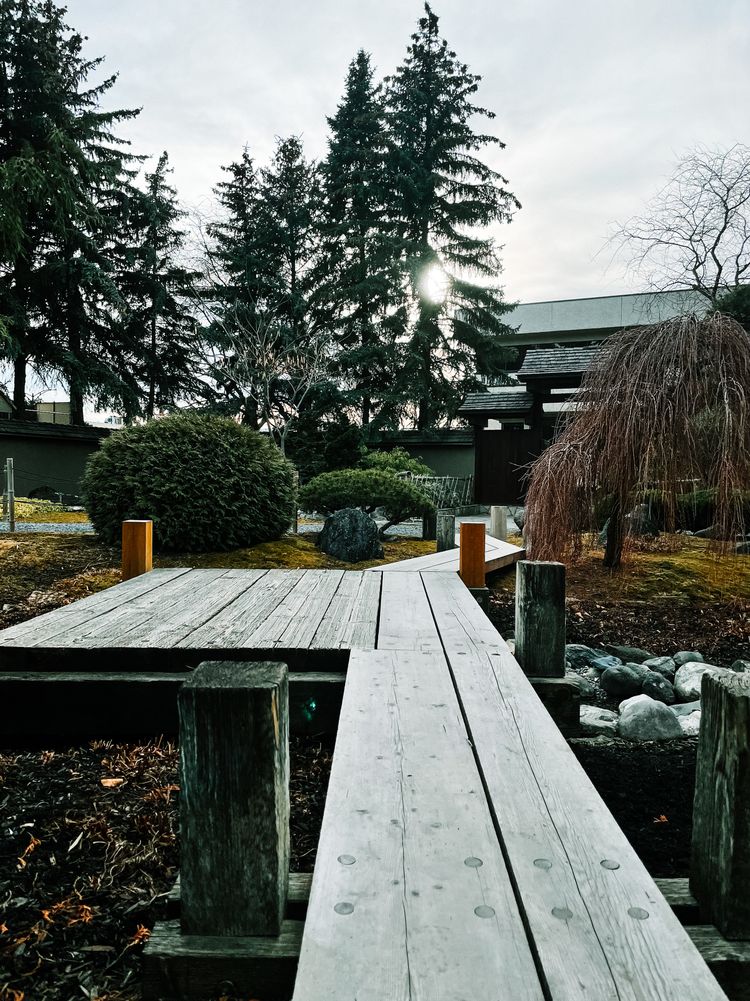Mindfulness Reading List
Partially inspired by Ryan Holiday’s Reading Recommendation Newsletter, I thought I would compile a list of books I have read this past year on my path of mindfulness. Ryan tends to read a lot of books- his emails list at least five books and some are not quick reads. Seeing the books he was reading encouraged me to read more this year, which is part of the reason I was absent from writing on this site. Little by little, I’ve been reading more at a volume I was more accustomed to in University.
I still read online a lot more compared to books, but a shift is slowly happening where I wean out the quick reads that won’t stick and focus on readings that will sit with me for a longer time. Less newsy items, more larger picture pieces.
My reading has focused more on mindfulness and Buddhism this year. I haven’t listed every book I read this year in regards to mindfulness, and I’m leaving out the books with other topics that are not as interesting to most people who will read this (i.e. prospecting new clients.) Without further ado, here is the path I have been taking this past year, with an unlikely first book that jumpstarted this journey.
—
Finding Zero: A Mathematician’s Odyssey to Uncover the Origins of Numbers by Amir Aczel
I discovered this book through Jason Kottke after it first came out. Something that isn’t as well known about me is I enjoy mathematics, and also have a fondness for stories of discovery. I like reading or watching videos about how certain inventions came to be, and Wikipedia tends to be a rabbit hole for me when I get curious about how something happened. Finding Zero is the story of Amir’s lifelong obsession with numbers and wanting to know where they’re from. His journey begins in the Mediterranean and ends in southeast Asia, and has him meeting with an array of interesting people: academics, politicians, smugglers.
The story is a short and fascinating one, with a surprising ending of where the first zero is found. The book propelled me to start thinking more about mindfulness and Buddhism, because zero is a very eastern belief. Emptiness is a deep philosophical concept that led to the creation of zero, which Amir introduces through a verse from the second century from a Buddhist philosopher named Nagarjuna:
Anything is either true,
Or not true,
Or both true and not true,
Or neither true nor not true,
This is Lord Buddha’s teaching.
That verse and book stuck with me through the summer until I decided to pursue it further after browsing a bookstore while in Vancouver.
The Buddha Walks Into the Office by Lodro Rinzler
I picked up this book with the belief that I would have more success relating mindfulness practices to a work environment. It turned out to be a great introduction to the concepts, phrases, and general ideas on how to get started. Lodro has written other books about applying mindfulness and Buddhism into other aspects of life that may be of interest (Buddha Walks Into a Bar, Walk Like a Buddha, and his latest,Love Hurts: Buddhist Advice for the Heartbroken).
This book is full of quote-worthy phrases that struck a chord with me. Every chapter started with a quote from someone in the past, not necessarily a Buddhist, but several of Lodro’s passages hit home while tying things together.
There are times, however, when your being genuine can actually intimidate others. When you are genuine, you are offering other people the opportunity to meet you in that state of mind. You are opening the door to the reality of what is going on, which is not always pretty. You are highlighting the fact that other people may not be considering the big picture or being genuine in relating to the project overall. If they are bullshitting their way through work, your genuine presence only illuminates that fact. As such, they may not always appreciate having their bullshit put on display.
What I like a lot about Lodro is his ability to pull from various sources to help describe the concepts, which gave me a survey of some of the greatest thinkers of mindfulness and Buddhism. One of the names I saw routinely through the book was Chögyam Trungpa Rinpoche.
Work, Sex, Money: Real Life on the Path of Mindfulness by Chögyam Trungpa Rinpoche
Chögyam is a very interesting man, with a colourful story. The more I read about him, the more I liken him to a rockstar of Buddhism, living life hard and fast compared to his contemporaries from Tibet, such as the Dalai Lama. They fled Tibet at the same time, when Chögyam was only 20 years old. He went on to translate a lot of traditional texts into English, founded over 100 meditation centres around the world, and is one of the main reasons why mindfulness and Buddhism has spread into the west. He was the founder of Shambhala Sun (now Lion’s Roar), and an influence on numerous well-known people, such as, Allen Ginsburg, William Burroughs, Pema Chödrön, and Joni Mitchell. He also smoked, was an alcoholic, and was accused of coming onto his students many times. His Wikipedia page is a wonderful read of what one person can do in their lifetime while fighting some inner demons.
As for Work, Sex, Money, I decided to pick it up because a lot of the quotations in Lodro Rinzler’s book came from it. It covers the three areas, providing tactics on how mindfulness can be incorporated into each part of our lives. It’s not as easy a read as The Buddha Walks Into the Officeso it’s not something to be considered lightly. Several of the chapters I ended up re-reading to make sure I had a full grasp of the content. It’s a book I find myself picking up again now and then to go through the chapters and allowing the content to sink into my body further. I quoted several passages of it in the past on here, but here is one more:
You are good; fundamentally, you are healthy. Moreover, that particular health is capable of accommodating your badness as well as your goodness. When you’re good, you’re not particularly bashful about your goodness, and when you’re bad, you’re not particularly shocked by that either. These are simply your attributes. When you begin to accept both aspects of your being as energy, as part of the perspective of your view of yourself, then you are connecting with the fundamental goodness, which can accommodate all of these energies as part of one basic being.
Walking the Kiso Road: A Modern-Day Exploration of Old Japan by William Scott Wilson
After the heavier dive into mindfulness, I wanted a lighter read that still kept me in a calm and peaceful mindset. Walking the Kiso Roadwas advertised in a Buddhist magazine that looked interesting to me. The Kiso Road is a section of an old highway used by pedestrians in Japan to travel from Kyoto to the new capital Edo, now known as Tokyo. It’s only 50 miles in length, most of it preserved, through a mostly rural section of Japan. Along the road, there are a series of 11 post towns, villages used as rest stops for travellers. A lot of the post towns are still the same as they once were, being used since the seventh century.
William takes you along the road, highlighting portions of the road for their historical significance, pointing out old markers, and explaining the many haikus along the trail. It was a very satisfying read to go through, with some wonderful writing about the people he connects with at the inns, the tea houses, noodle shops, and along the trail. The book contains the new stories of the people he meets, but also passages from older journals of writers and poets of Japan who have used the Kiso Road as inspiration for centuries, for their work and also for providing advice to travellers. William integrates these passages with is own story to make a compelling read:
According to the very first article in the Angya jo, or Basho’s Rules on Pilgrimages,
You should not sleep twice in the same inn. Your thoughts should be on a mat that has not yet been warmed.
I was not particularly anxious to leave the warm, friendly, even collegial atmosphere of the Tsuchikawa-ya; but in deference to the wisdom of the great poet and traveler Basho, I set out for my new lodging at the Ice-ya, just a short walk away in the middle of Narai.
If that passage interests you, you’ll love this book, as it’s full of the ancient wisdom and Japanese terms.
The Tibetan Book of Living and Dying by Sogyal Rinpoche
The last book I will mention here is the one I am currently reading. A book that has been on my radar for a while, I picked it up in a chance encounter at a used goods store, tucked away in the mainly Christian religious section of books. Like Work, Sex, Money, it is a much more dense read, but I find it is having a calming effect on me as I progress through it. While the other books focused on mindfulness and the present, this one covers the end of life as well.
Being only a third of the way through it, I can’t write a lot about it. The one, strong message so far is death is not the end of life, but the beginning of something new. It’s a common thread for all major religions. With Buddhism, it goes in a different direction, as life doesn’t begin again in heaven or elsewhere, but on Earth once more. It is likely going to be a book I write about in the future the closer I get to the end of it. For now, it’s definitely a book to read and have on your shelf if you are interested in pursuing mindfulness.
—
Five books is a strong introduction to mindfulness. There are many more books, of course, more than I will likely never get around to reading.
I can point you in the direction of the two major magazines though, the previously mentioned Lion’s Roar, and Tricycle (if you’re in the US, you can subscribe through Amazon easily, Lion’s Roar and Tricycle.) Both are equally good, have a mix of modern and older writings, and have online resources available to subscribers. Subscribing to Tricycle gives you the added benefit of a free movie to stream each month, sharing inspiring stories around the world. Each offer free newsletters, but I prefer Tricycle’s newsletter of free daily readings.
Both are highly recommended to purchase and explore to see how modern practitioners are following mindfulness around the world.
Hope you found this list of books interesting. Please consider sharing it with your friends and networks to spread the message of mindfulness.





Member discussion